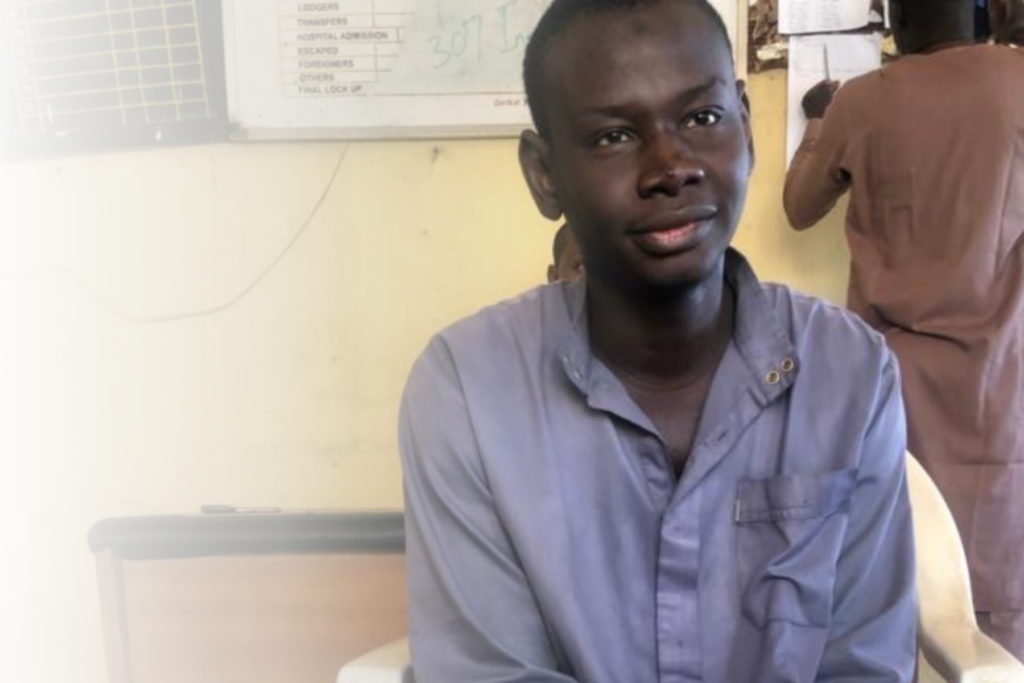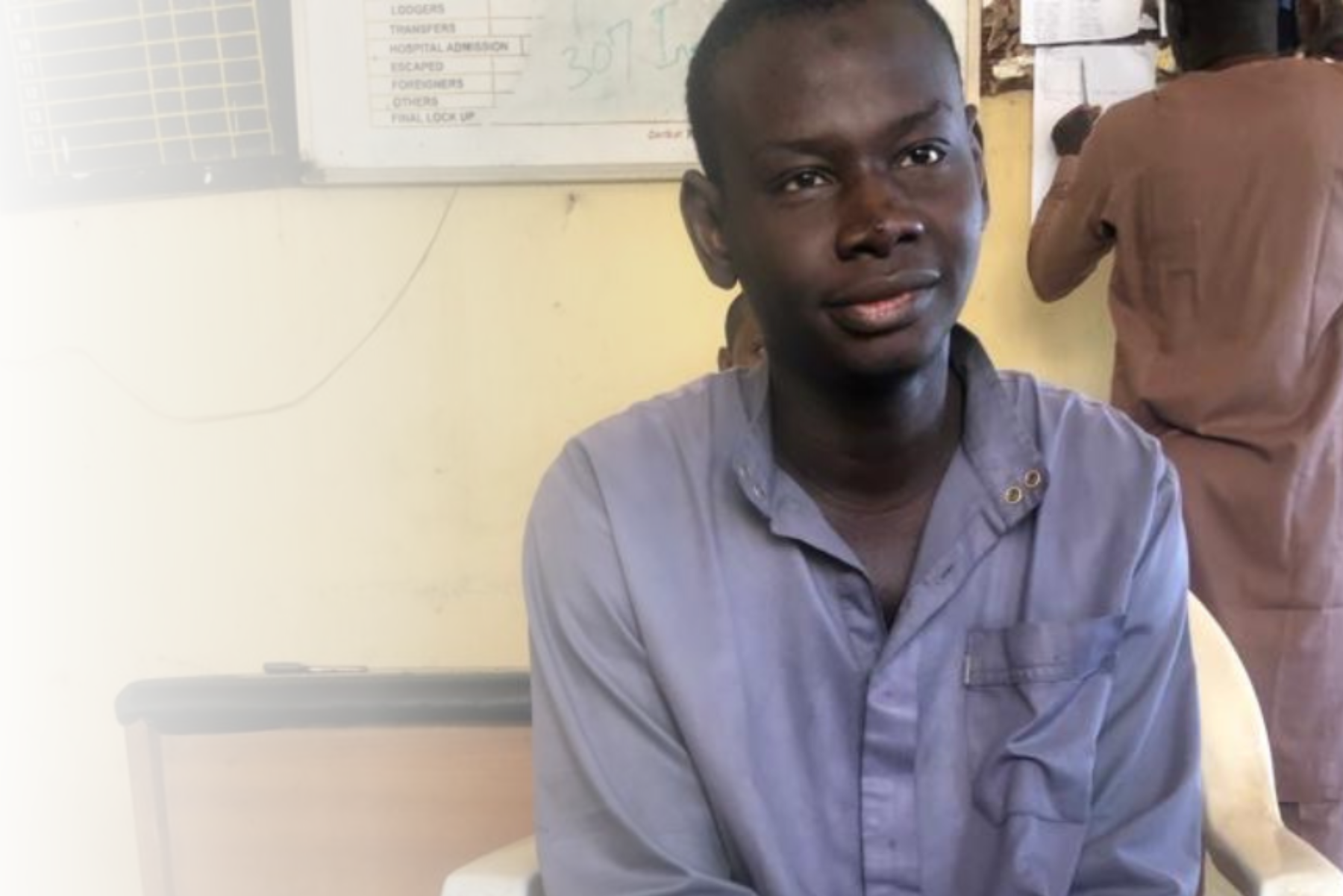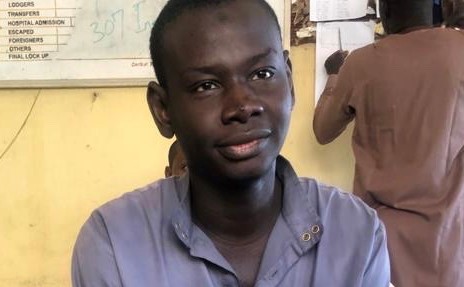After more than five years’ imprisonment, a first hearing for Yahaya Sharif-Aminu’s WhatsApp blasphemy case was held at the Nigerian Supreme Court; State lawyer declares “we will execute him publicly”
ADF International is supporting Yahaya in his fight for justice and the repeal of Nigeria’s blasphemy laws.

ABUJA (26 September 2025) – Yesterday, the Supreme Court of Nigeria held its first hearing in the case of Yahaya Sharif-Aminu, a young Sufi musician sentenced to death in 2020 in Kano State, Nigeria, for allegedly sharing song lyrics on WhatsApp deemed blasphemous. This marks the first step in his appeal before the country’s highest court, more than five years after his imprisonment. The Supreme Court permitted Sharif-Aminu’s appeal to move forward.
Directly following the hearing, Lamido Abba Sorondinki, counsel for the Kano State government, spoke explicitly about the state’s intention to publicly execute Sharif-Aminu, should the Supreme Court rule in Kano State’s favor: “This applicant made blasphemous statements against the Holy Prophet, which the government of Kano State will not condone. If the Supreme Court upholds the lower court’s decision, we will execute him publicly.” This chilling statement underscores the extreme severity of northern Nigeria’s blasphemy laws, which continue to threaten the lives of religious minorities and silence free expression.
“The Supreme Court of Nigeria has before it a matter of literal life or death. Absolutely no one should face the death penalty for peacefully sharing song lyrics. In a severe violation of his fundamental human rights, Yahaya has languished in prison for more than five years for a peaceful WhatsApp message"
- Sean Nelson, Legal Counsel for ADF International
“The Supreme Court of Nigeria has before it a matter of literal life or death. Absolutely no one should face the death penalty for peacefully sharing song lyrics. In a severe violation of his fundamental human rights, Yahaya has languished in prison for more than five years for a peaceful WhatsApp message,” said Sean Nelson, Legal Counsel for ADF International. “Yesterday’s Supreme Court hearing is the next step in earning justice for him and protecting his right to free expression and religious freedom, and in turn, that of every person in Nigeria. This case goes beyond one young man. It is about whether millions of Nigerians can live free from fear under unjust blasphemy laws.”
“For far too long, blasphemy laws have wrongfully been used to persecute and harm religious minorities. It is time for the court to make a decision that upholds the right to religious freedom in Nigeria,” said Kola Alapinni, Nigerian Human Rights Lawyer and lead counsel for Yahaya Sharif-Aminu.
Background
In March 2020, Yahaya-Sharif Aminu, a Sufi Muslim from Kano State, shared song lyrics on WhatsApp that some considered blasphemous. Local authorities arrested him, while a mob burned his home to the ground. On 10 August 2020, a Sharia court convicted him of blasphemy and sentenced him to death by hanging.
In January 2021, the court overturned the conviction, citing serious procedural flaws, including the lack of legal representation during his original trial. However, the High Court ordered a retrial, in which Sharif-Aminu would face the same death penalty blasphemy law. After an appellate court upheld the retrial order in 2022, Yahaya Sharif-Aminu appealed to the Supreme Court of Nigeria.
Sharif-Aminu has remained in prison for over five years and is currently awaiting justice from the Supreme Court. Sharif-Aminu, in his appeal, is now asking the court not only to free him, but also to declare Kano State’s death penalty blasphemy law unconstitutional, arguing that it violates Nigeria’s own constitution and international commitments to protect freedom of religion and expression.
Blasphemy Laws in Nigeria
Nigeria’s blasphemy laws, particularly enforced in the country’s northern region, inflict severe punishments including the death penalty. International human rights groups have repeatedly called for their repeal. Yahaya’s case before the Supreme Court highlights the urgent need for reform to protect freedom of religion and belief.
Yahaya’s Supreme Court appeal has the potential to overturn Northern Nigeria’s draconian Sharia-based blasphemy laws, thus enabling Christian converts, minority Muslims, and others, a greater chance to freely speak about their faith and be protected from the often-life-threatening violence that accompanies a blasphemy accusation.
The European Parliament has already called for Yahaya’s release twice by adopting an urgency resolution in his case. It is rare for the European Parliament to raise the same case twice, demonstrating the gravity and importance of the situation facing Yahaya. The United Nations Working Group on Arbitrary Detention has similarly determined that Yahaya’s imprisonment is in violation of internationally-recognized human rights. Earlier this year, the regional West African treaty court, the ECOWAS Court, ruled that Nigeria’s blasphemy laws violate international law and the African Charter, calling for the blasphemy laws’ repeal. The ECOWAS Court based its decision in significant part on Yahaya Sharif-Aminu’s case.










